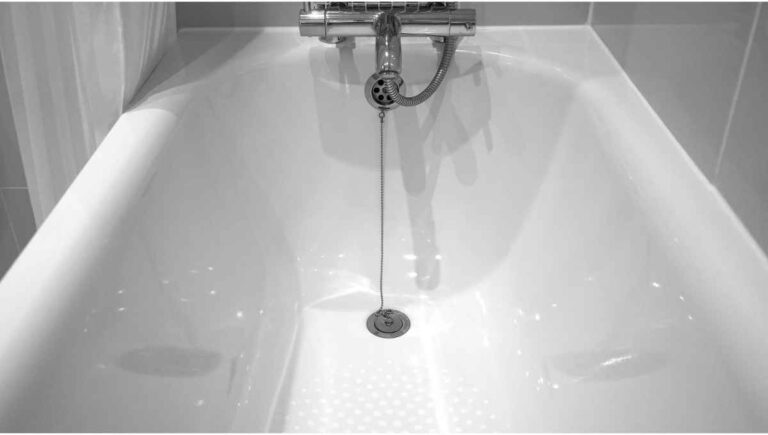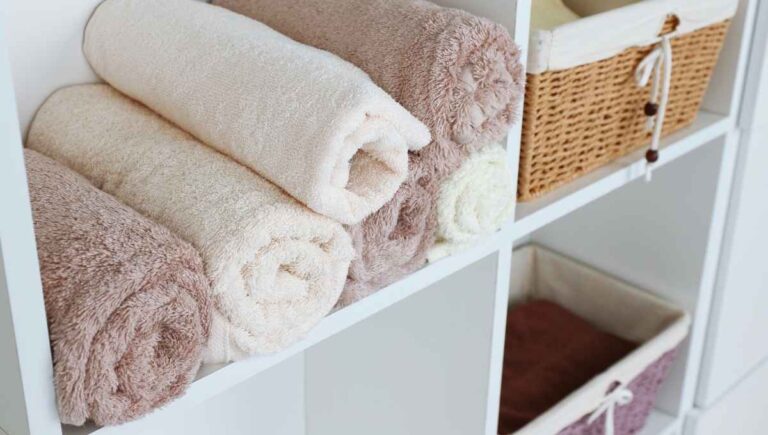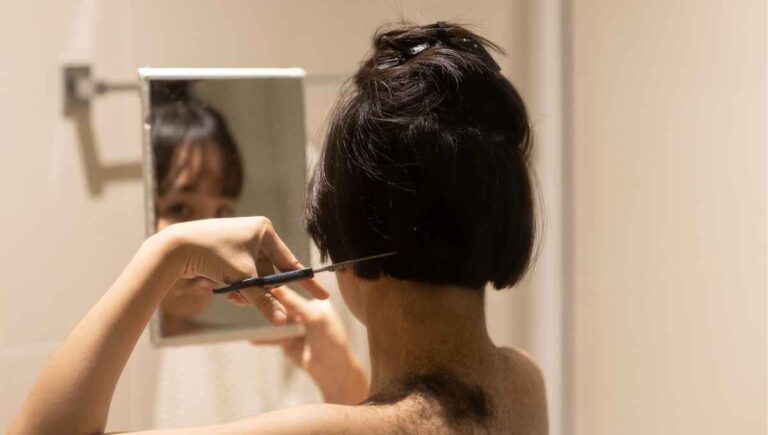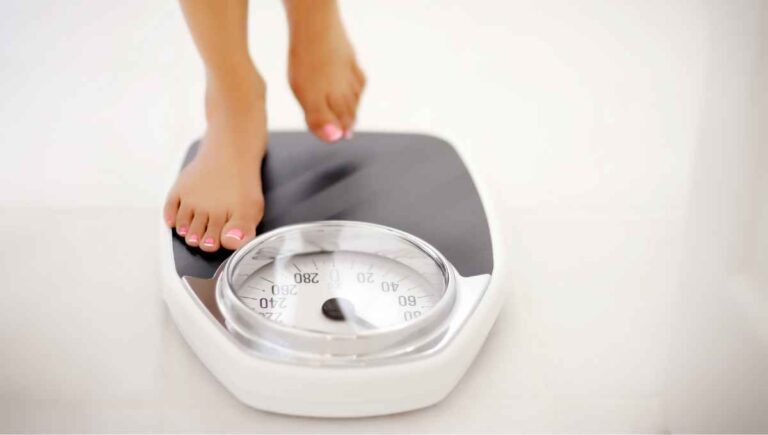Do You Throw Away Shower Curtains? (How to Recycle Them)
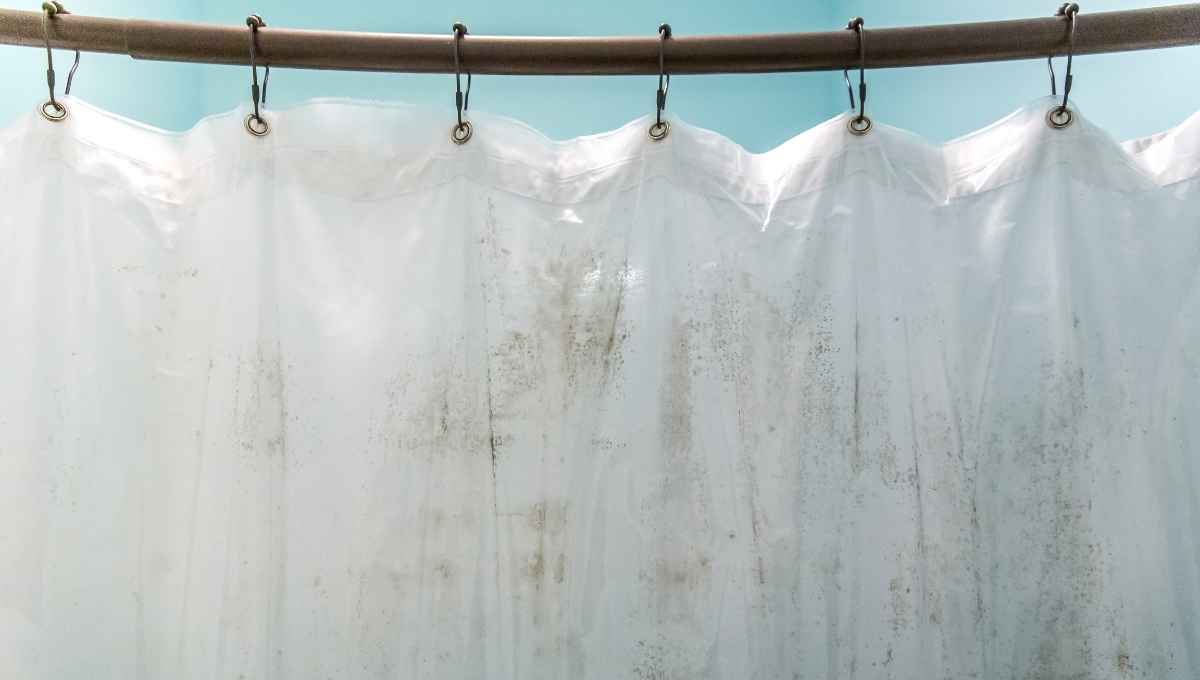
If you’ve had your current shower curtain for a few months now, you’re probably thinking it might be time for a new one. There are so many options, and it could be overwhelming to decide which new shower curtain to purchase or even if you should throw away your old one.
You shouldn’t throw away your old shower curtain when purchasing a new one. There are so many ways that you can reuse it in your house. Remember, most shower curtains cannot be recycled as other plastics since they are made from PVC.
In this article, we discuss which shower curtain you should get for your next purchase, and we look at how toxic PVC curtains are. We’ll also tell you about ways to reuse your old shower curtains and how to keep them clean.
This post contains affiliate links. This means Household Blogger may earn a commission should you make a purchase using any of our links. Please refer to our full affiliate disclosure policy for full details.
Here’s a Quick Pro Tip!
You should not throw out your shower curtain. Most are made of PVC (polyvinyl chloride), which cannot be recycled. Instead, we recommend reusing your old shower curtains around your house.
Here are a few ways to reuse your old shower curtains:
1. A waterproof cover for your dog bed.
2. A table cloth for your picnic table / outdoor table.
3. Keep your firewood dry.
Should You Throw Out Shower Curtain
You should not throw out your shower curtain. Most likely, it cannot be recycled, and it also cannot decompose. Here are some other ideas you can do with your old shower curtain instead!
When Should You Throw Out a Shower Curtain?
You shouldn’t throw out a shower curtain. Instead, you should reuse it. You should purchase a new curtain if you start to notice a build-up of mold. Your shower curtain can last a lot longer if you use a shower curtain liner to block most of the water from your shower.
Most sources recommend replacing your shower curtain every six months, although it differs for everyone.
Depending on how often you shower, you should check and wash your shower curtain regularly.
Should I Throw Away My Shower Liner?
You don’t need to throw away your shower liner. Instead, inspect your shower liner and if you see any mold, wash the liner. If any mold still remains after a wash, it might be best to throw away your shower liner and purchase a new one.
If you notice mold on your shower curtain after being in the laundry, you can purchase a replacement on Amazon.
A shower liner should be replaced about every six months, depending on how often the shower is used.
What Are Shower Liners Made Out Of?
There are three materials that shower liners can be made of. Each has its advantages and disadvantages. The most common are Vinyl/PVC liners, PEVA & EVA liners, and Fabric liners.
- Vinyl/PVC liners are usually cheap and practical. It is made out of PVC or polyvinyl chloride, which contains a lot of phthalates. These liners sometimes omit a strong chemical odor which could lead to headache and nausea.
- PEVA & EVA (Polyethylene Vinyl Acetate and Ethylene Vinyl Acetate) liners are an alternative to vinyl liners. They are eco-friendly, chlorine-free, and have antimicrobial qualities.
- Fabric liners are made out of fabric, so they are easily washed and reused. Fabric shower liners can enhance the interior design of your bathroom, giving it a softer and more sophisticated look. They are made to be water repellent.
What Are Shower Curtains Made Out Of?
Shower curtains are available in a variety of different materials, including vinyl, cotton, polyester, or microfiber. They are used to prevent the water from your shower from spilling on the bathroom floor and for privacy reasons.
- Vinyl shower curtains are the most popular material due to their low price and little maintenance required. Vinyl shower curtains can be cleaned easily and are available in a wide range of colors and designs to match the color of your bathroom interior.
- Cotton shower curtains are more expensive but also more durable. Cotton shower curtains are easy to wash, just throw them in the washing machine, but they should be washed every month. You should pair a cotton shower curtain with a high-quality liner.
- Polyester or microfiber shower curtains are waterproof and are also more durable than vinyl shower curtains. These shower curtains will have a fabric look and be heavier than most shower curtains. This shower curtain is perfect for high-pressure showers.
How Often Should You Replace Your Shower Curtain?
How often you should replace your shower curtains depends on a few factors, but the rule of thumb is to replace your shower curtain every six months. However, you should regularly check your shower curtain for mold build-up, as that is your sign to replace it.
How often you replace your shower curtain depends on these factors:
- How often is the shower used?
- Do you use a shower curtain liner to protect your curtain?
- Do you wash your shower curtain often?
- What quality is your shower curtain?
Can I Reuse Shower Curtains?
You can reuse your shower curtain! Replacing a shower curtain every six months could feel irresponsible, especially if you feel that your shower curtain still has some potential. We have a list of ways you can reuse your old shower curtains.
Ways to reuse your old shower curtain:
- Dog bed cover – you can upcycle your old shower curtain as a dog bed cover, which is great because you can wash the dog hair off every week or so.
- Chair pillow cover – this would be perfect for patio / outdoor chairs as the material is waterproof and will not damage in the rain.
- Keep your firewood dry – if you store your firewood outside, you can throw an old shower curtain over it to keep it dry from rain and snow.
Are Vinyl Shower Curtains Toxic?
According to the Center for Health, Environment, and Justice (CHEJ), Vinyl / PVC shower curtains release over 100 chemicals into the air. That ‘new shower curtain smell’ is quite toxic! They contain high levels of phthalates.
The report by CHEJ also highlights that some vinyl shower curtains contain lead and other metals which have been proven to be toxic to humans.
At the moment, there are no federal standards to prevent indoor air pollution due to toxic chemical releases.
This report also encourages Congress to take the necessary steps to reform outdated chemical policies.
You might also enjoy our post on How to Keep Your Shower Curtains From Falling Down
How to Recycle
You can’t recycle your shower curtains as you would with normal plastics, as they don’t decompose. Don’t worry, though. We’ve got plenty of other ideas for your old curtains!
How Do I Dispose of a Plastic Shower Curtain?
Most plastic shower curtains cannot be recycled because they are made of PVC, which is not recyclable. However, it is not recommended to simply dump your plastic shower curtain in the trash, as it will end up in a landfill.
Plastic does not decompose, so you should find alternative uses for your old shower curtain. One idea is to turn it into a weather-proof cover for your patio furniture or a tablecloth for your kitchen table.
Can Shower Curtains Be Recycled?
Vinyl or PVC shower curtains and shower curtain liners cannot be recycled like you would recycle normal plastics. Because PVC cannot be recycled in municipal recycling systems.
However, there is a company called TerraCycle that offers a service to recycle almost any plastic in your house.
Simply mail your old shower curtains to them in a box, and they will take care of recycling them.
Why Can’t You Recycle Shower Curtains?
You can’t recycle shower curtains because most are made of PVC, polyvinyl chloride, also known as plastic number 3. Although this is the most used plastic, it is usually not recyclable due to the chloride.
There are two ways to recycle PVC, but most small plastic recycling companies can not recycle plastic.
The first is mechanical recycling, which involves mechanically treating the plastic to reduce it into smaller pieces that can be melted down and molded into new products.
The second is feedstock recycling, which is a chemical process to convert plastic waste to its chemical components, which will be used as fuel for energy recovery.
Can Peva Shower Curtains Be Recycled?
PEVA shower curtains can be recycled. They are completely chlorine-free, so they can be recycled alongside your other plastics. We would recommend always buying PEVA shower curtains.
PEVA shower curtains are also more durable and have a longer lifespan than vinyl shower curtains.
PEVA shower curtains are made to resist mold and insects, so they can be used for more than the six months recommended time frame.
What Can I Do With Old Shower Curtains?
If you have a vinyl shower curtain and it’s time for a new one, we have some options for you to upcycle your old shower curtain. Don’t simply throw it in the trash. There are so many alternative uses!
What to do with old shower curtains:
- Waterproof bed liner for toddlers or kids.
- Waterproof bed liner for your dog bed.
- Produce bags to store vegetables in your fridge.
- A cushion cover for your chairs.
- Waterproof patio furniture covers.
- A floor or wall drawing mat for your kids.
- Placemats on your dinner table.
- Trunk liner to keep your trunk clean.
- Protect your floors when painting.
Can I Use a Shower Curtain as a Tablecloth?
Using an old shower curtain as a tablecloth is probably one of the most used upcycling methods to save money, and it’s good for the environment. It’s also very easy to transform your old shower curtain into a table cloth.
Shower curtains can be the perfect table cloth. They are big enough to cover a big dining table. Or you could bring it along with your next picnic and throw an old shower curtain over the picnic bench.
You might also enjoy our post on How to Keep Tension Rods From Falling
Can Shower Curtain Liners Be Recycled?
It depends on what material your shower curtain liner is made of. If your liner is made of PVC, then it cannot be recycled, but PEVA shower curtain liners can be recycled as they contain no chloride.
Your shower curtain liner can be reused in the same ways as your shower curtain.
From creating waterproof covers for your furniture to creating a waterproof bed liner for your toddler, there are a lot of things that you can reuse your shower curtain liners for.
Should I Donate My Old Shower Curtain?
Donating your old shower curtains could give a less fortunate family something that they might not be able to afford usually. Most donation organizations across the United States accept shower curtains and liners.
You should contact your local charity organizations and enquire if they accept shower curtains as donations. Alternatively, you could donate your old shower curtains to the salvation army or goodwill.
Eco-Friendly Options
Eco-friendly shower curtains are zero-waste, plastic-free, and non-toxic. Although they might be more expensive, they can last a lot longer.
Are There Any Zero-Waste Shower Curtains?
Linen shower curtains are excellent zero-waste, plastic-free and non-toxic shower curtains. These curtains are produced and reused with the conservation of the materials at their core.
Linen shower curtains are more expensive than vinyl/PVC shower curtains.
These curtains are also heavy-duty, which means they will be perfect for a shower with high water pressure, although you should always remember to use a curtain liner.
Are There Eco-Friendly Shower Curtains?
There are eco-friendly shower curtain options available on the market. They are ethically made from biodegradable materials. Many different fabrics are used, not just linen.
Eco-friendly shower curtains could be made from hemp, which is washable and mold resistant.
It could also be made from linen or cotton, which can increase not only the aesthetics of your bathroom but also decrease the toxicity levels in your bathroom.
What Is the Best Eco-Friendly Shower Curtain Liner?
The best eco-friendly shower curtain liners are PEVA liners which can be recycled with your normal plastics. PEVA curtain liners also contain no toxins or chloride, making them healthier too!
We would recommend the LiBa PEVA shower curtain liner as your next eco-friendly shower curtain liner. Remember to use it with an (eco-friendly) fabric shower curtain for the best, safest possible shower experience.
Do Hemp Shower Curtains Exist?
A hemp shower curtain is another eco-friendly option if you want to replace your PVC shower curtain. Hemp shower curtains are becoming more popular. You can purchase them straight from Amazon.
A hemp shower curtain needs to be cleaned as soon as you see any mold appearing. It is completely plastic-free and an excellent zero-waste option for your bathroom.
If you get a rash after showering with a PVC curtain, you might be allergic to one of the components in the plastic. However, hemp curtains are allergen-free.
What Is the Safest Material for a Shower Curtain?
This depends on what ‘look’ you prefer for your bathroom. PEVA shower curtains are the safest material if you like the ‘plastic’ look, and hemp is the safest material if you like the ‘fabric’ look in your bathroom.
However, overall, fabric shower curtains are a lot safer than PEVA curtains. Hemp is zero-waste, plastic-free, and eco-friendly.
It is the perfect option if you want to be more cautious about the environment and the safety of your family.
You might also enjoy our post on How to Get Your Bathtub White Again
Related Questions
How Do You Clean a Shower Curtain Without Taking It Down?
If you need to clean your shower curtain in a hurry or you can’t take it down, there is a way to still combat the mold and mildew that build up on your shower curtain. All you need is water and vinegar.
Take an old plastic spray bottle and fill it with one part vinegar and four parts water and shake well until mixed.
Then climb into your shower/tub and spray the mixture on the side facing inside the shower/tub. Let it sit for a few minutes and rinse off with water.
How Long Do Fabric Shower Curtains Last?
Fabric shower curtains last a lot longer than plastic ones. If cared for properly, your fabric shower curtain can last for years. However, if you do not take care of your shower curtain, you will have to replace it sooner.
Fabric shower curtains should be washed every two to three months. You can also keep an anti-mold spray in your bathroom.
Every time you spot mold on your shower curtain, you should spray some anti-mold.
Are Vinyl Shower Liners Safe?
Vinyl shower liners are not safe. They contain phthalates and organotins, which can cause health issues in humans. These health issues could include damage to the liver or reproductive systems.
Vinyl shower liners also give off that specific ‘new shower curtain’ smell. Studies have shown that this smell is so strong it could cause headaches or could even make you nauseous.
It is not a safe option for your family.
Final Thoughts
Hopefully, you will think twice about simply throwing out your old shower curtain because it can be reused in so many ways!
Also, we discussed which shower curtains you should avoid due to them being dangerous to humans and the environment.
We hope this will help you the next time you need to purchase a new shower curtain!





